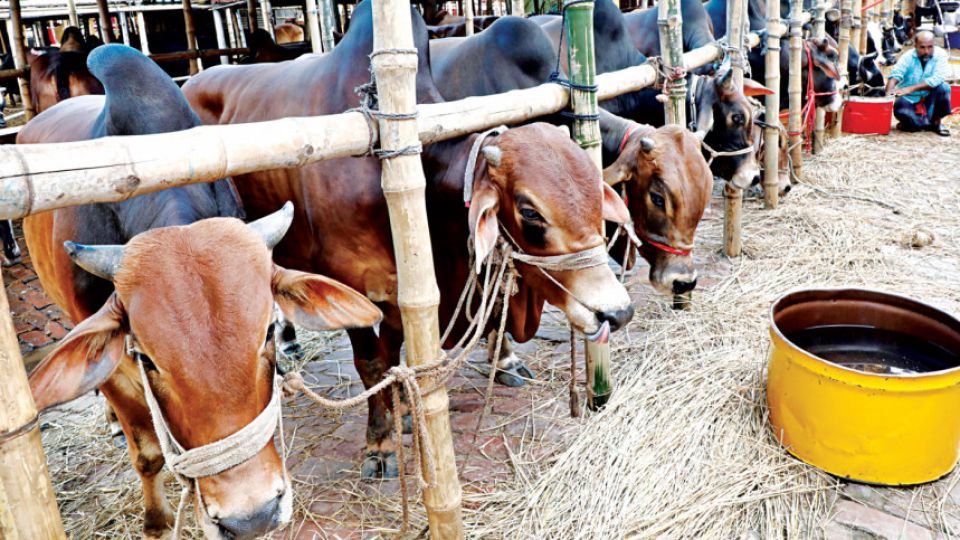July 4, 2022
DHAKA – Rokon Bepary, a farmer from Shibchar, brought 16 bulls to the Dholaikhal cattle market this year, almost half of what he brought last year, due to a huge loss of Tk 3 lakh.
Rokon had to sell 16.5 decimal of his land to recover from the loss.
“I have to leave this business if I face loss again. I do not have any land left to sell,” said Rokon who is hoping to make a profit this year provided Indian bulls do not make their way into Dhaka’s cattle market.
Not just Rokon, many cattle traders either reduced their production or left the business due to the huge loss last year.
However, the statistics of the Department of Livestock is showing a different picture. According to them, 1 crore 21 lakh 24 thousand sacrificial animals were reared this year against the demand of 97.75 lakh across the country.
About 9,093,242 cattle were sacrificed across the country last year, as per data from the Ministry of Fisheries and Livestock.
Last year’s loss, high price of cattle feed and cattle in local markets during the beginning of the seasons were the main causes of reduced production, said Md Ashraful Alam, a trader from Chuadanga.
Each sack of cattle fodder was being sold for Tk 1,800 to Tk 1,900 whereas last year they were being sold for Tk 1,200, said another trader Md Abdul Khalek.
Md Milon Hossain, a trader from Jhenidah’s Balorampur said this year, the production of sacrificial animals have been less by around 20 percent due to the financial problem in their area — mainly connected to betel leaf farming, which saw a huge loss due to virus contamination.
“Last year, 14 trucks of animals were brought to Dhaka from Balorampur. The number is 8 this year,” said Milon.
This year 19 makeshift cattle markets and a permanent one have been leased for the upcoming Eid-ul-Azha, scheduled to be observed on July 10.
Ten of the total markets, including the permanent one at Gabtali, are under Dhaka North City Corporation while the other 10 are under Dhaka South City Corporation.
A good number of sacrificial animals have already been gathered at different cattle markets before the official beginning of the rush.
Reaz Uddin, operator at the Dholaikhal market, said they will start their operation formally from Wednesday and volunteers are busy to ensure smooth vehicular movement on roads.


